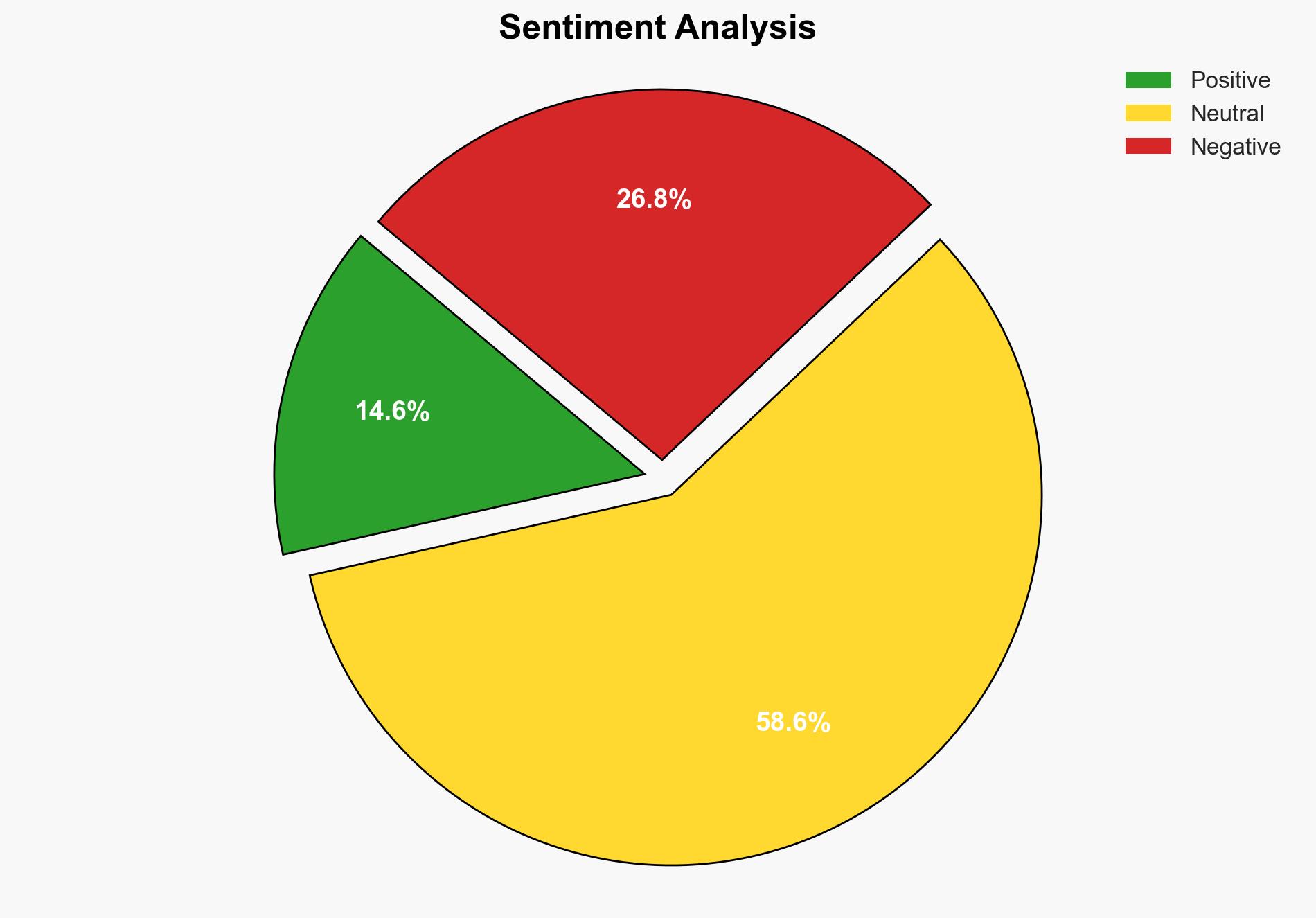Hackers Exploit ChatGPT with CVE-2024-27564 10000 Attacks in a Week – HackRead
Published on: 2025-03-17
Intelligence Report: Hackers Exploit ChatGPT with CVE-2024-27564 10000 Attacks in a Week – HackRead
1. BLUF (Bottom Line Up Front)
A recent cybersecurity breach has exploited a vulnerability in OpenAI’s ChatGPT infrastructure, identified as CVE-2024-27564. This vulnerability, classified as a medium severity server-side request forgery (SSRF) flaw, has been actively exploited with 10,000 attacks recorded in a single week. The attacks have primarily targeted financial sectors and government organizations, with the United States experiencing the highest concentration. Immediate action is required to address misconfigurations in security systems and to prioritize medium severity vulnerabilities to prevent further exploitation.
2. Detailed Analysis
The following structured analytic techniques have been applied for this analysis:
General Analysis
The exploitation of CVE-2024-27564 demonstrates a significant cybersecurity threat, leveraging a medium severity SSRF flaw in ChatGPT’s infrastructure. The attacks originated from a single malicious IP address, indicating a coordinated effort. The vulnerability has been weaponized in real-world scenarios, affecting organizations globally. The financial sector is particularly vulnerable due to its reliance on AI-driven services and API integrations, making it susceptible to internal resource compromise and sensitive data breaches.
3. Implications and Strategic Risks
The exploitation of this vulnerability poses substantial risks to national security, economic stability, and organizational reputations. The financial sector faces potential data breaches, unauthorized transactions, and regulatory penalties. Government organizations are also at risk, potentially compromising sensitive information. The global impact is significant, with the United States, Germany, and Thailand being the most affected regions. The trend of targeting medium severity vulnerabilities highlights a shift in attack strategies, necessitating a reevaluation of current security prioritization practices.
4. Recommendations and Outlook
Recommendations:
- Conduct a comprehensive review of intrusion prevention systems (IPS), web application firewalls (WAF), and traditional firewall configurations to address misconfigurations.
- Enhance monitoring of logs for attack attempts originating from identified malicious IP addresses.
- Prioritize the assessment and mitigation of medium severity vulnerabilities in AI systems as part of a broader risk management strategy.
- Implement regulatory and organizational changes to improve cybersecurity resilience, particularly in the financial sector.
Outlook:
In the best-case scenario, organizations will swiftly address the identified vulnerabilities, reducing the risk of further exploitation. In the worst-case scenario, continued exploitation could lead to widespread data breaches and financial losses. The most likely outcome involves increased awareness and prioritization of medium severity vulnerabilities, leading to improved security practices and reduced attack success rates.
5. Key Individuals and Entities
The report mentions significant individuals and organizations involved in the research and analysis of this cybersecurity event. Notable entities include Veriti and HackRead, which have played crucial roles in identifying and disseminating information about the vulnerability and its exploitation.




